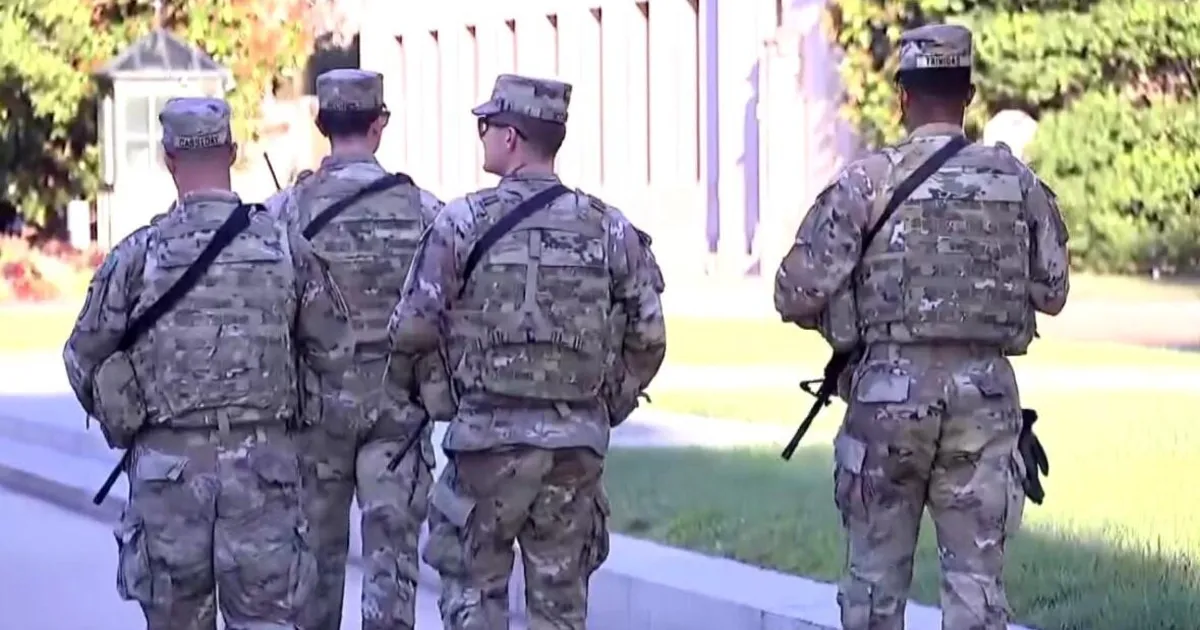
On Tuesday, President Donald Trump made a bold statement asserting, “I have the right to do anything I want,” as Chicago braces itself to see if he will follow through with his controversial threat to send National Guard troops to the city. This potential deployment comes amid ongoing discussions about crime control strategies reminiscent of his actions in Washington, D.C..
Despite President Trump’s claims, a retired Illinois National Guard general noted that the capabilities of any troops deployed to Chicago would be markedly limited. The White House has yet to provide clarity on whether or when any troops might be dispatched as part of Trump’s plan to address crime in the city. The former head of the Illinois National Guard emphasized that if activated, those soldiers would face significant restrictions in their operational scope.
The authority to deploy the National Guard in Illinois ultimately rests with Governor JB Pritzker, who is prominently listed as the top authority on the Illinois National Guard's official website. While he has the power to authorize the deployment, there are specific legal exceptions under which the president can utilize a state's National Guard, as outlined in the Posse Comitatus Act. This federal law permits the president to deploy National Guard troops only under three circumstances: to repel an invasion, suppress a rebellion, or execute federal laws when regular forces are unavailable.
If President Trump decides to activate the National Guard in Chicago, Governor Pritzker has made it clear that he will challenge this move in court, arguing that the criteria for invoking the Posse Comitatus exceptions have not been met. In response to Trump’s assertion of authority, Pritzker retorted, “Mr. President, do not come to Chicago. You are neither wanted here nor needed here.”
During his comments, President Trump expressed a desire for cooperation, suggesting he would respect Governor Pritzker more if he were to reach out for assistance. “I would have much more respect for Pritzker if he'd call me up and say, 'I have a problem, can you help me fix it?'” Trump stated. He emphasized his belief that the country is in danger, particularly in urban areas, and declared, “I can do it. No problem going in and solving his difficulties.”
Retired U.S. Army Maj. Gen. Richard Hayes, the former adjutant general of the Illinois National Guard, weighed in on the situation, stating that the president lacks the legal authority to send in federalized troops for law enforcement purposes. If sent to Chicago, the National Guard troops would be limited to roles such as standing guard at federal properties, rather than engaging in law enforcement activities. “They could certainly protect federal property, that’s a reasonable thing to do,” Hayes added, underscoring the constraints faced by the National Guard.
The potential deployment of National Guard troops in Chicago differs significantly from past instances, such as the recent deployment in Los Angeles, which was heavily focused on immigration issues. While the National Guard in Los Angeles assisted federal agents dealing with immigration enforcement, both the governor of California and the mayor of Los Angeles opposed that deployment, much like the current situation in Chicago. The White House proceeded with the deployment in Los Angeles, resulting in a lawsuit against the Trump administration for allegedly violating the Posse Comitatus Act.
The ongoing situation in Chicago raises important questions about the balance of power and the legal frameworks that govern the deployment of National Guard troops. As debates continue, residents and officials alike are left to navigate the complexities of crime control strategies and federal authority.